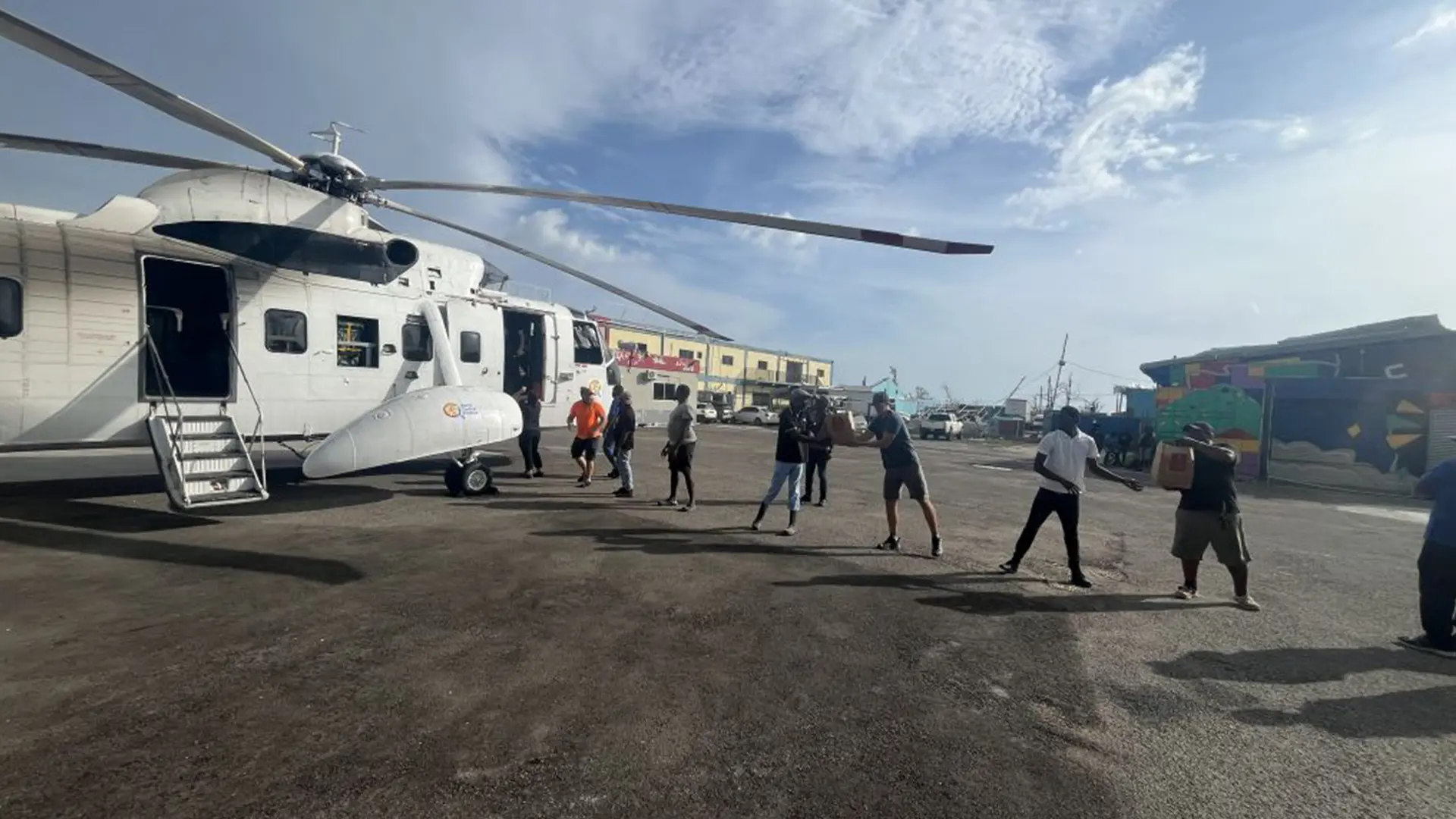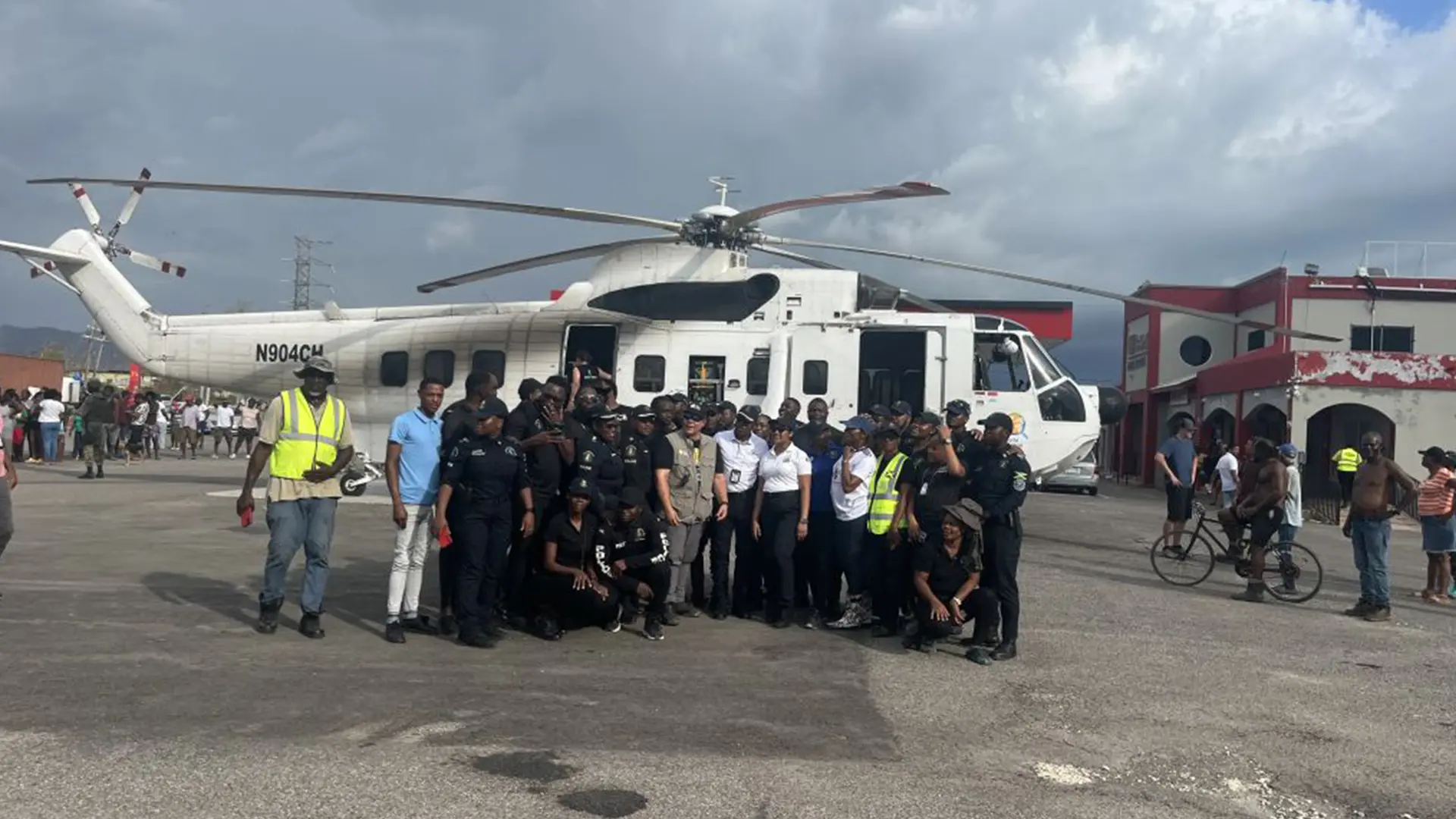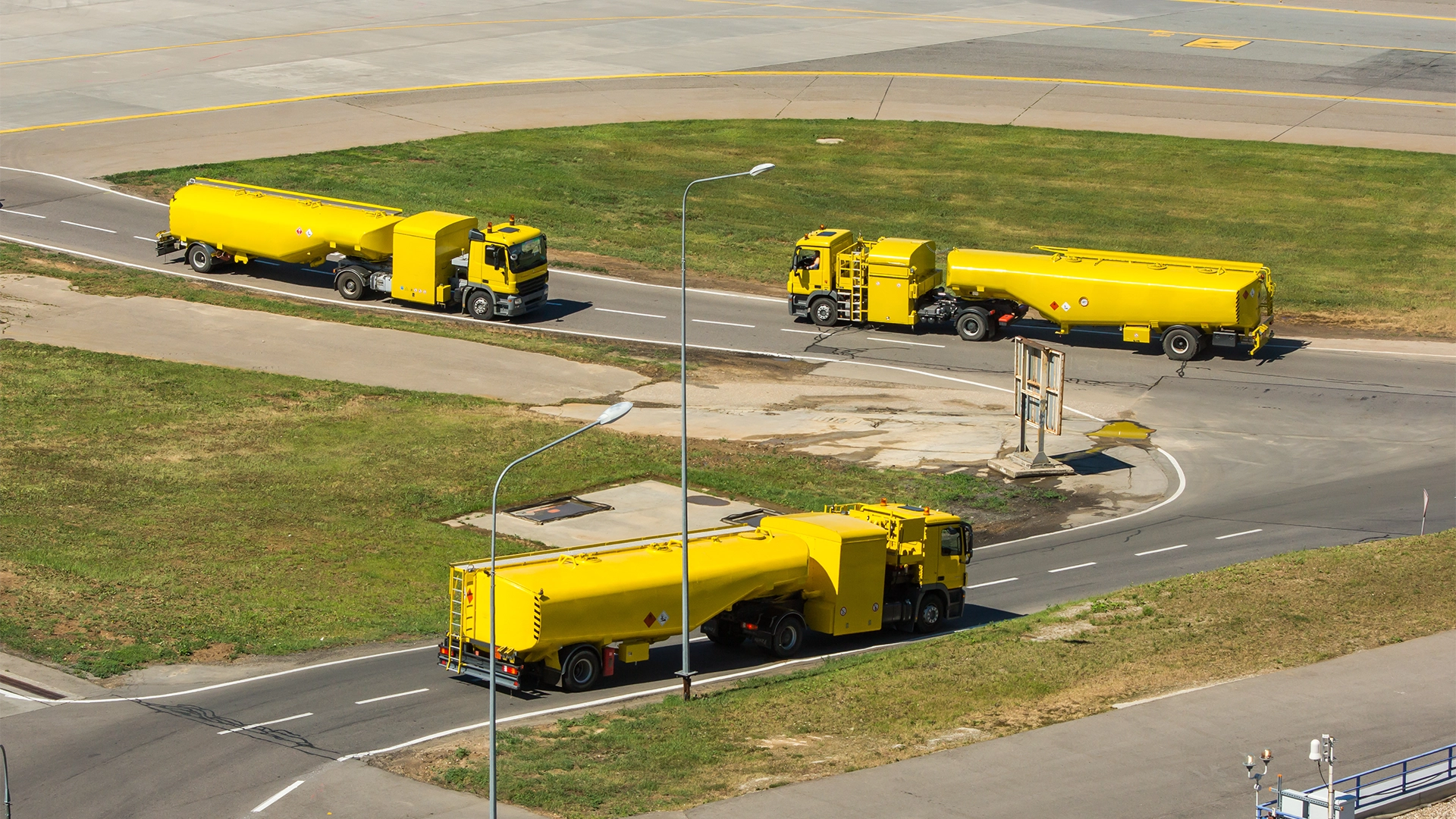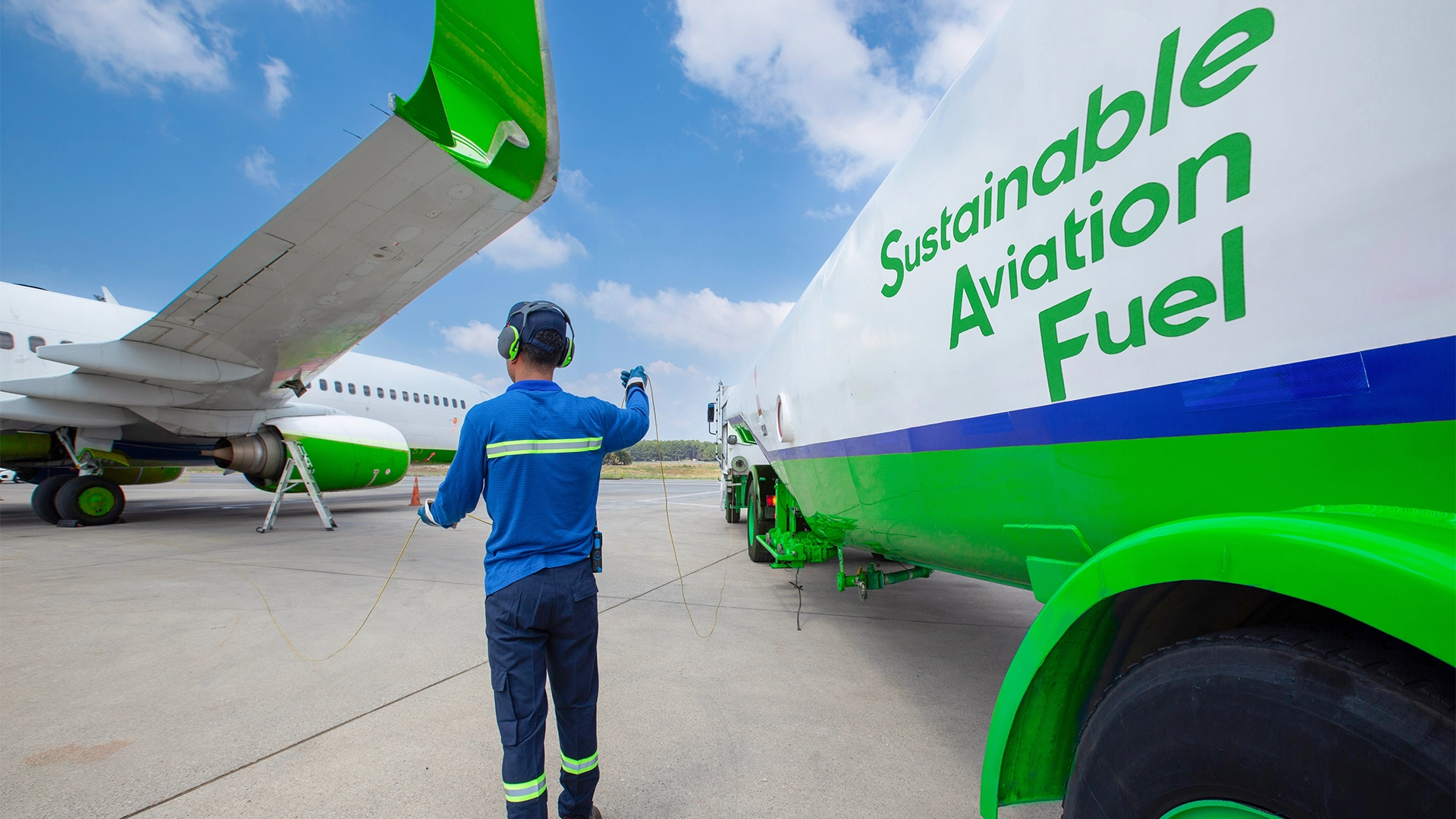
As Hurricane Melissa set its sights on the island nation of Jamaica, business aviation stakeholders like Chapman Freeborn rallied their teams and organized fleets of aircraft able to put aid and resources on the ground within hours of the storm’s passing.
Fort Lauderdale-based NBAA member company Chapman Freeborn operates in various sectors, including large-cargo aircraft and passenger operations, as well as a dedicated business aviation desk. The company often adopts an organization-wide approach to emergency response requirements, drawing upon all available resources to assist with humanitarian relief missions.
“With the hurricane, we had some advanced warning with the trajectory, which afforded us valuable hours for pre-planning efforts,” said Vice President of Government and Humanitarian – Americas Cam Bolton-Wilson. “We tracked the storm and coordinated resources in the region in advance, based on our extensive experience responding to those kinds of events.”
Bolton-Wilson also drew upon his military experience in special operations. “Airport and aviation infrastructure will understandably be limited, at least in the initial days,” he said. “That opens the requirement for smaller, more agile Part 135 aircraft to operate into austere environments. You may not get an Airbus A320 into those areas, but a CASA C-212 or Cessna Caravan will do the job.”

The company also leveraged its pool of operators throughout the region as international non-governmental organizations [NGOs] and humanitarian groups reached out to source solutions. “Our trusted operators had assets ready,” Bolton-Wilson said. “Our 24/7 operations center in London provided global airlift oversight and shared the latest trajectory data, NOTAMs, risk advisories and other critical information that allowed us to understand how we could respond as quickly as possible.”
Among those organizations is World Central Kitchen, which provides meals in the aftermath of humanitarian crises. Chapman Freeborn arranged multiple assets, including a Sikorsky S-61 heavy lift helicopter and an Embraer ERJ145 regional jet, to transport personnel and equipment the moment it was safe to fly into Jamaica.
“We ultimately deployed the Embraer from Miami to Kingston with World Central Kitchen’s initial team,” Bolton-Wilson added. There were eight-12 people onboard, plus portable kitchen equipment packed in personal baggage to support early relief operations.”
In addition to the ERJ145, Chapman Freeborn also supported rapid response requirements using a Gulfstream G-IV, and fielded requests for assistance from the commercial, NGO and government sectors. The company also positioned additional helicopters, turboprops and private jets to transport crews and equipment into remote areas on demand.
While many assets were ultimately not needed, Bolton-Wilson stressed the importance of such preparation. “Humanitarian operations are the ultimate stress test for a company like ours,” he said. “In normal operations, you often have lots of time to sequence all the necessary permits and requirements and confirm aircraft availability.
“In this case, even with the advance notice of this hurricane,” he added, “It was still very much a case of hitting the ground running and going now.”




